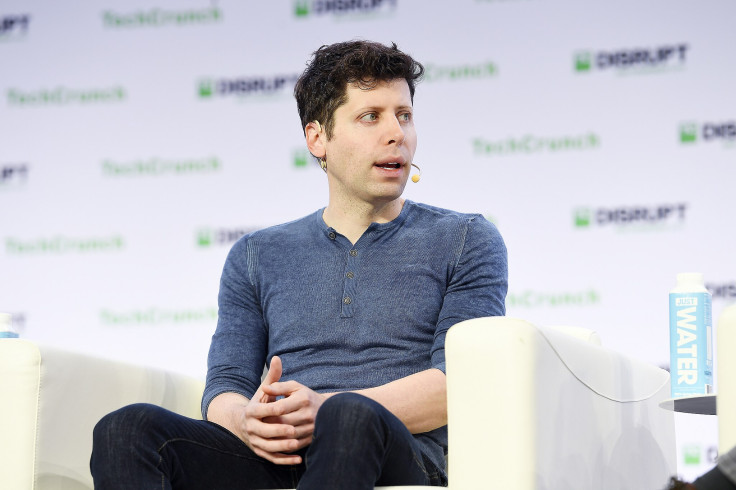OpenAI CEO's Reinstatement Raises Concerns Over $51 Million AI Chip Deal with Personal Investments
The agreement between OpenAI and Rain AI signed in 2019, committed OpenAI to the substantial investment once the chips became available.

Sam Altman, recently reinstated as OpenAI's CEO after a sudden dismissal, might have parted ways with the company, but his ties to AI development and personal investments remained intact.
During Altman's tenure, OpenAI had inked a letter of intent to spend $51 million on AI chips from Rain AI, a startup where Altman holds personal investment stakes. This move intertwined Altman's dual roles, reflecting potential conflicts of interest in his capacity as OpenAI's CEO.
Rain AI, situated near OpenAI's San Francisco headquarters, focuses on developing a neuromorphic processing unit (NPU) designed to emulate human brain functions. The agreement between OpenAI and Rain AI, undisclosed until now, projected an expenditure of $51 million on these chips once they hit the market.
Additionally, Altman's personal investment in Rain AI exceeded $1 million, as revealed in investor documents. Despite these arrangements, OpenAI's spokesperson, Kayla Wood, stated that the company hadn't progressed with Rain AI, stressing that the initial agreement was nonbinding. Wood expressed OpenAI's openness to future discussions with Rain AI.
Altman's previous leadership at startup incubator Y Combinator fortified his status as a prominent figure in Silicon Valley, actively investing in numerous startups while facilitating collaborations between entrepreneurs and major corporations.
However, this overlapping involvement seemingly contributed to his recent dismissal by OpenAI's board due to alleged communication discrepancies, according to individuals familiar with the matter.
Altman has publicly lamented the scarcity and high costs of AI chips, citing their pivotal role in advancing AI capabilities. Despite leveraging Microsoft's robust cloud infrastructure, OpenAI encountered limitations with ChatGPT due to hardware constraints.
Altman highlighted the significance of novel chip designs and reliable supply chains in propelling AI progress, as discussed in a closed-door meeting with developers.
Rain AI's progress projections to potential investors indicated their readiness to finalize a test chip, a milestone in chip development called "taping out", by this month. However, recent leadership reshuffles and the mandated divestment of a Saudi Arabia-affiliated fund, Prosperity7 Ventures, posed challenges for Rain AI.
This forced withdrawal could potentially delay OpenAI's realisation of the $51 million chip order. The shares acquired by Silicon Valley-based Grep VC following the divestment singled out the complexities surrounding Rain AI's financial landscape.
The concerns raised by the US about Prosperity7's involvement with Rain AI also cast shadows over Altman's efforts to expand the AI chip supply globally. His discussions with Middle Eastern investors aimed at establishing a new chip company to diversify beyond Nvidia GPUs and specialised chips from tech giants like Google and Amazon have attracted attention.
However, these talks remain confidential, with Altman seeking additional funding sources for OpenAI and other entities relying on advanced AI hardware.
Rain AI, founded in 2017, boasts of its brain-inspired NPUs, claiming potential computing power up to 100 times greater and energy efficiency for training tasks up to 10,000 times better than GPUs.
Altman's involvement in Rain AI's initial financing rounds coincided with OpenAI's subsequent commitment to invest $51 million in their chips. The company's workforce of approximately 40 employees, encompassing experts in AI algorithms and traditional chip design, signifies their multidisciplinary approach.
Recent shifts in Rain AI's leadership, including the transition of CEO roles and the departure of the founding CEO, Gordon Wilson, were evident on the company's website. Wilson's departure announcement on LinkedIn lacked specifics, accentuating Rain AI's potential to revolutionize AI chip markets. The company aims to recruit an industry veteran as Wilson's permanent replacement, as indicated in communications to investors.
Rain AI's chip designs, based on the open-source RISC-V architecture, target edge devices such as phones, drones and robots, offering capabilities for both training and inference tasks. Despite claims of engaging in talks with tech giants like Google, Oracle, Meta, Microsoft and Amazon, responses from these companies regarding Rain AI's collaboration remained elusive.
Prosperity7's investment in Rain AI triggered scrutiny from the Committee on Foreign Investment in the United States (CFIUS), reflective of growing concerns about safeguarding US national security.
While Rain AI received prior investments from the Chinese entity Baidu without complications, the Saudi Arabian investment raised red flags due to its potential ties to the Saudi government.
CFIUS's focus on ensuring control over critical technology echoed concerns about foreign influence in accessing advanced US semiconductor technology.
© Copyright IBTimes 2025. All rights reserved.






















